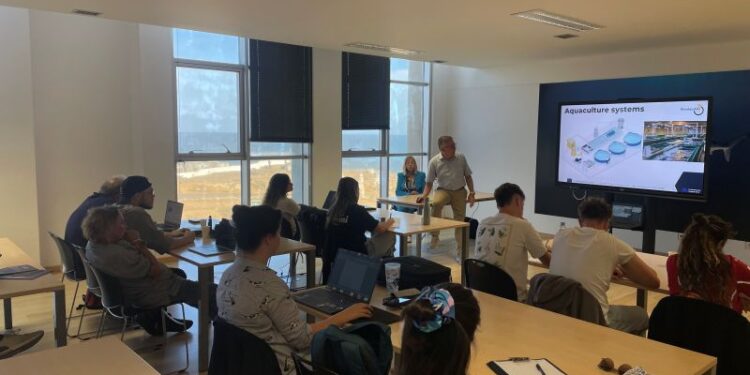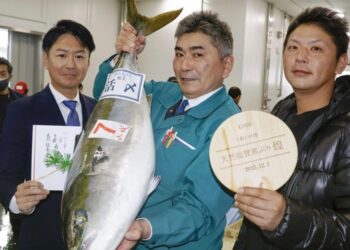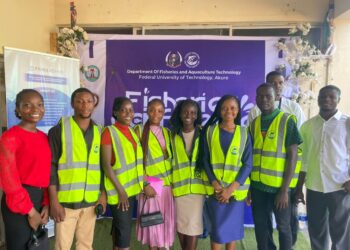BlueAquaEdu Summer School: RAS and Training – Keys to a Sustainable Aquaculture Future
On September 4th, 2025, students and professionals in the blue economy came together for an online workshop hosted by partner SEAentia as part of the BlueAquaEdu project. This first step set the tone for what was to come, exploring the future of Recirculating Aquaculture Systems (RAS)—a transformative technology shaping tomorrow’s aquaculture. Discussions ranged from challenges and opportunities in RAS to the skills and careers needed to lead the sector forward. This virtual encounter paved the way for a richer experience in Peniche, Portugal, where the Summer School unfolded just a few days later.
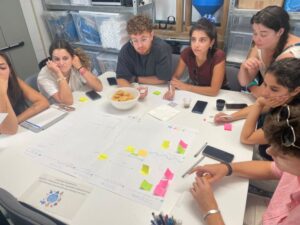
RAS: The Technology Changing the Game
RAS has emerged as more than just a technical option—it is a practical response to global environmental pressures. By reusing and treating water continuously, RAS reduces resource consumption, enhances biosecurity, and enables higher production standards while minimizing impact on ecosystems. Throughout the Summer School, experts introduced participants to the fundamentals, key components, and real-world applications of RAS, providing a comprehensive view of its role in building a resilient blue economy.
Training: Turning Knowledge into Practice
What made the Summer School truly stand out was the balance between academic insight and hands-on experience. The program included interactive sessions on fish health and welfare, water quality, risk management, and circular economy principles, alongside open discussions on innovation and sustainable business models.
Beyond the classroom, participants gained field experience by visiting advanced RAS facilities, seeing technology in action, and working through Design Thinking workshops to craft innovative solutions to real challenges. Educational games and practical activities, such as biometric analysis of meagre fish, brought science to life while fostering teamwork and critical thinking.
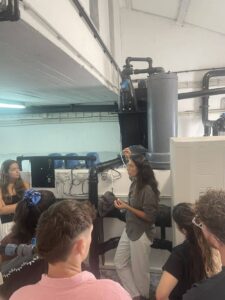
More Than Just Training
The value of this Summer School lies not only in the academic credits (ECTS) it awarded, but in the holistic experience it offered. By combining theory, practice, and creativity, it equipped participants with the knowledge and skills to actively contribute to the future of aquaculture. Perhaps most importantly, it created a space for dialogue and collaboration between students, researchers, and industry, building bridges that will support innovation well beyond the event itself.
From the digital workshop to the on-site activities in Peniche, the BlueAquaEdu Summer School was a journey rich in learning and inspiration. It highlighted that investing in specialized training—particularly in RAS—is essential for securing sustainable food systems and healthier marine environments. It was more than a program; it was a launchpad for the next generation of aquaculture leaders, ready to shape the future of the blue economy.
Learn more about the project
https://portal.blueaquaedu.eu/summer-school-list
BlueAquaEdu Summer School: RAS and Training – Keys to a Sustainable Aquaculture Future

